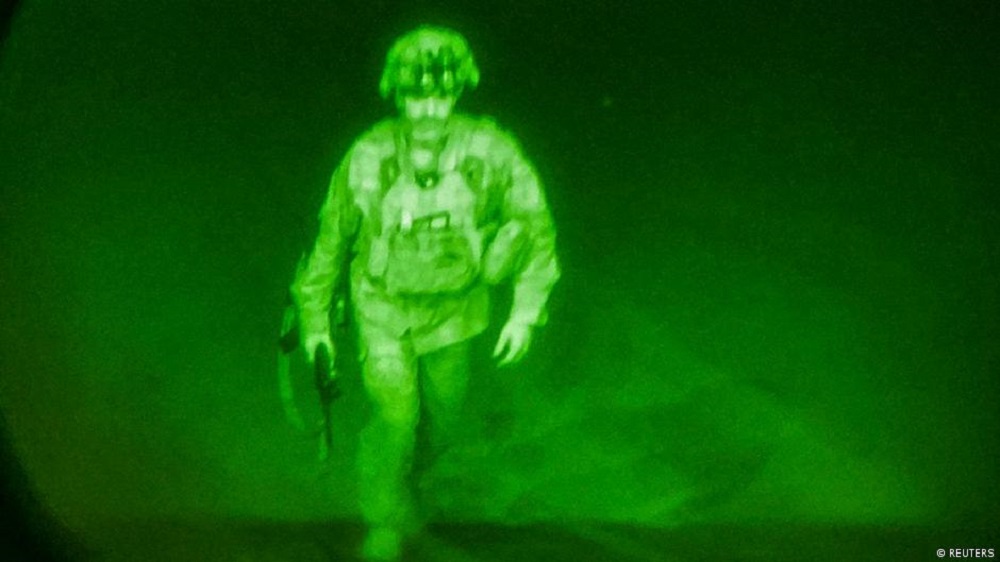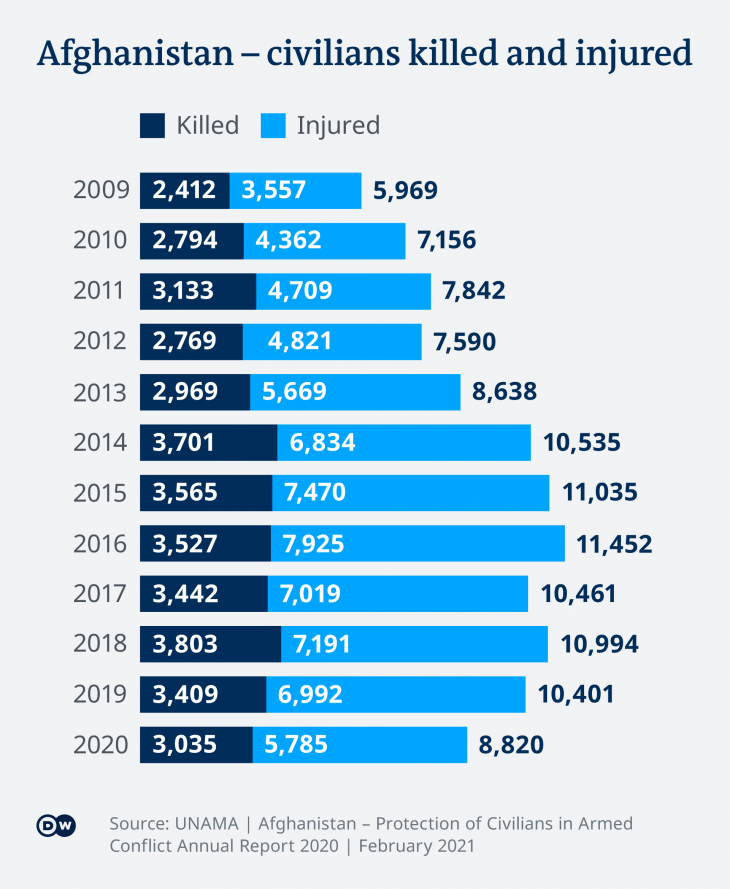The symbolic importance of the U.S. defeat

"Our commitment to Taiwan and to Israel remains as strong as it’s ever been." Addressing a global audience from the White House on 17 August, Senior National Security Advisor Jake Sullivan pushed the point home. It sounded somewhat off-topic. The Afghanistan debacle was in the process of unfolding. U.S. forces, along with their NATO allies, had just evacuated their embassies in Kabul and retreated to the airport.
This declaration of support for Taiwan and Israel by Joe Biden's chief security strategist was meant to reassure. The impression left by the Americans' precipitate withdrawal from Afghanistan must have been so overwhelming that such explicit commitment seemed necessary. It was a mention with import.
For although the two allies are strategically exposed and vulnerable, they have nothing directly to do with the Afghan crisis. Moreover, no-one in their right mind would have doubted the effective protection of these two states by the USA. Whether the words of top security advisor Sullivan actually reassured the governments in Taipei and Jerusalem cannot be clearly determined.
The USA has changed sides in Afghanistan. They have surrendered the field to the Taliban, the enemy, the host of al-Qaida, against whom they went to war twenty years ago. Local allies who had counted on the politically democratising and socially emancipating effect of Western intervention may well be struck by a sense of betrayal. In terms of world history, however, the manifestation of American weakness, exposed for all to see around the globe, is probably the more powerful.
How irrepressible was the self-assurance with which U.S. troops marched off to eradicate militant Islamism at its roots, how booming the confidence that the liberated would, impressed and grateful, adopt the values of the victors and defect into their camp! It is only when we think back to the resolute days following 11 September 2001 that the scale of the August 2021 debacle begins to emerge.
The fact is that twenty years of American and European dominance have driven large segments of the Afghan population into the arms of the Taliban, who were not particularly popular at the time of their fall in November 2001.

Criminal elements of Western intervention
The Western military occupation displayed elements of criminality. American soldiers and their allies became guilty of murder. Reckless murders, sadistic murders, murders of entire crowds. Added to this were startling cases of the negligent killing of Afghan civilians. While this was happening, the strategists and commanders of this war on terror had no clue what they were actually fighting for, as some of them later admitted.
The excesses of the military have already cast doubt on explanations given for the failure in Afghanistan, according to which the heads of government and ministers in Kabul (appointed by the West) acted selfishly and corruptly and thus prevented the building of a successful state. Yet, there is also something else. On the civilian side of its Afghanistan campaign, the West believed in the swarm intelligence of capitalism. Its definitive victory in 2001 was, after all, only ten years previously – everything still felt so fresh and positive.
The NATO countries poured incredible sums of money into Afghanistan. The final tally for the USA runs into the trillions of dollars, for Germany it amounts to tens of billions of euros. Understandably, scores of companies and NGOs were lured to Kabul.
By their own admission, they wanted to "help" build a new Afghanistan. Modern transport routes, flourishing agriculture, a secure energy supply: these were just some of the promises. But in fact, the "reconstruction helpers" went where money could be earned quickly and easily. The NATO countries were wealthy customers, the best imaginable. Especially since those holding the purse strings in the U.S. administration had given the green-light to practically unlimited debt. For years during the war on terror no politician asked how much the bill was going to be. The bottom line is, however, that no state-building took place in Afghanistan. Instead, a whole range of individual stakeholders lavishly lined their own pockets.
Clearly, not only the Taliban profited from the mission in Afghanistan. For example, it was possible to "advise" NATO and the Afghan government on how to replace opium poppy cultivation with food-based agriculture. Even if the "concepts" did not work out, the consultancy fees still flowed.
A mind-blowing graphic in today's Times on what $85bn worth of lost equipment means in practice for the Taliban: pic.twitter.com/GDcuNQbb6P
— Will Brown (@_Will_Brown) August 29, 2021
"The West lost in Afghanistan. But for some in the West, the mission was well worth it"
The manufacturers of drones, military vehicles and automatic handguns arguably benefitted the most. The vehicles and firearms are now largely in the hands of the Taliban. This shows the need for differentiation. The West lost in Afghanistan. But for some in the West, the mission was well worth it. Did the corrupt Afghan elite copy their behaviour? Was their behaviour maybe even rational in a Western sense?
Afghanistan has also shown that a successful commons does not necessarily emerge from a multitude of individual economic interests. This leads us from the scale of this defeat to its symbolic importance.
In Afghanistan, it is arguable that neo-liberalism also failed. The strength of the Western state is merely superficial. In reality, it disburses borrowed money indiscriminately to solve problems that only get bigger as a result. Those who rightly said in the 1990s that not only an army – namely the Red Army – had been defeated in Afghanistan, but also a system – namely Soviet communism – had failed, may now find entirely new sources of dialectical insight.
Recent public appearances by Germany's political class have also been deeply significant. In her Afghanistan statement to the Bundestag, the outgoing Chancellor complained that some people were now claiming in a know-it-all manner that the collapse had been foreseeable. In retrospect, it was "not complicated" to determine that, Angela Merkel said.
What a distortion, what a falsification of history is embedded in Merkel's "in retrospect"! For at least fifteen years, reports have been piling up in the media and from government agencies that the operation was getting out of hand. The problem of local forces had been on the table since 2012 at least, when the withdrawal of troops seemed to be on the horizon. The German government deceived itself and the public with its persistent assertions that "progress" was being made in Afghanistan.
In view of the dire outcome, we must ask whether this debacle is something that is likely to repeat. Could "Afghanistan" potentially become a template for other policy fields? After all, when it comes to the climate crisis, the decision-makers act as if they were purposefully fighting the evil with the appropriate antidotes, working on solutions, making progress. We suspect that here, too, the situation could suddenly change very quickly. In which case, the cabinet ministers will once again look like overtaxed puppet masters and the chancellor will be free to mouth off about know-it-alls.
But perhaps this is wrong, because by then the Western decision-makers will no longer be those making the decisions. Perhaps, by then, the "decisions" will be made somewhere else.
Unlike its border with Taiwan, China has a land border with Afghanistan. In 2002, with reference to the West's war on Islamist terror, a retired French intelligence chief told the author of these lines that "le Chinois rigole", which loosely translates as "China is laughing ".
Perhaps China will inherit Afghanistan from the West as a sphere of influence. After all, the country is a treasure trove of those natural resources crucial to the digital age and e-mobility: lithium, rare earths, copper. Perhaps Afghanistan will become for China what Saudi Arabia was for the USA in the 1940s: the raw materials supplier for its rise to world power status. If things go well.
© Qantara.de 2021
The author works as a television journalist for the ARD political magazine Panorama.
You may also like:
Afghanistanʹs political future: Is peace with the Taliban possible?
Repercussions of 9/11: The West and the Islamic world – mutually radicalised?
Afghanistan between defiance and despair
Fighting the Taliban in Afghanistan: Where the warlords still hold sway
